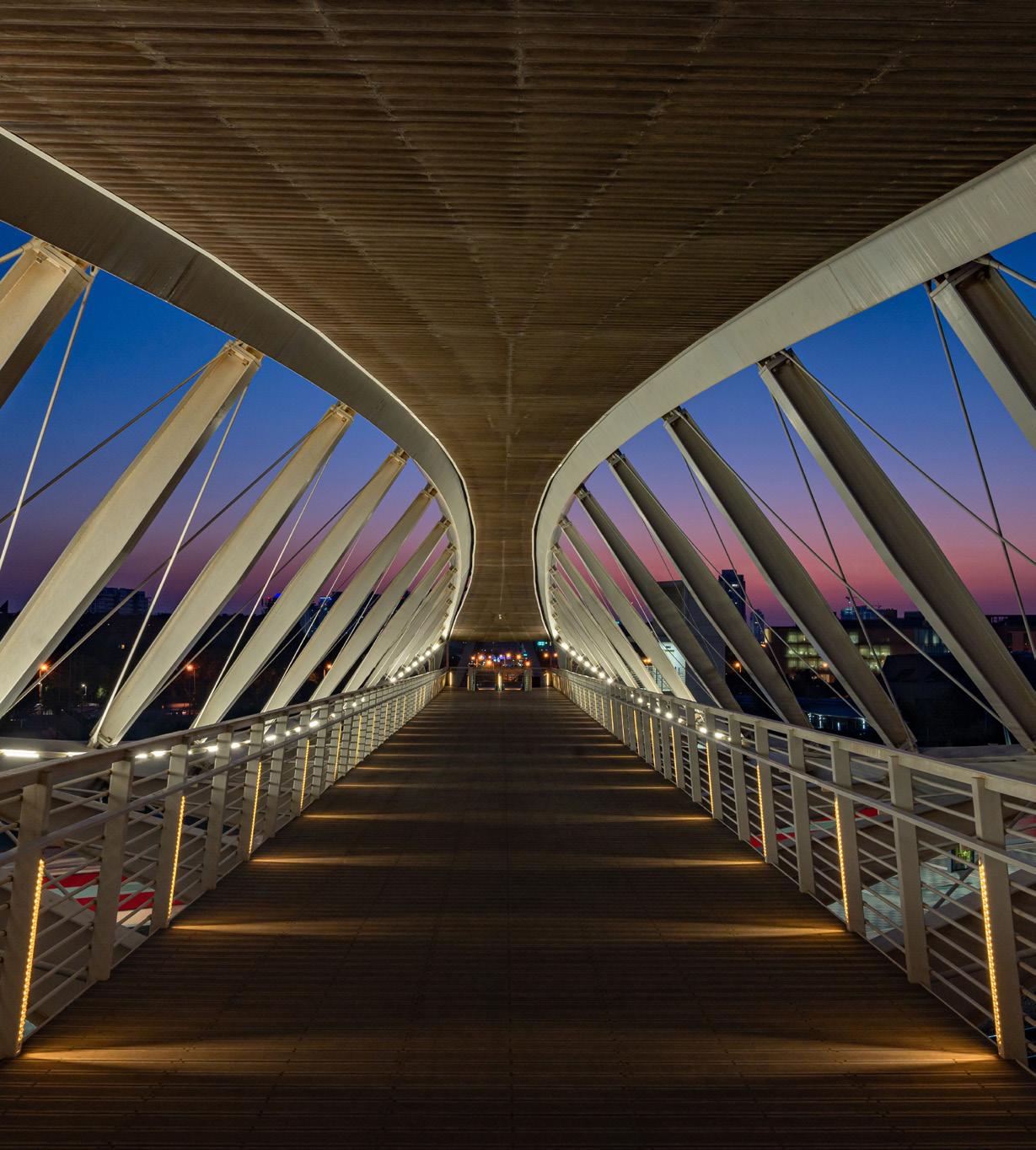NEGEV





21st Century Zionism: Not your Great-grandfather’s Israel
From A to Zin: Americans for Ben-Gurion University Zin Fellows Program Connects Next Generation of Leaders
Celebrating the Life and Legacy of Israel’s First Prime Minister
Ben-Gurion University’s First Moroccan Exchange Student Finds Collaboration on a Cellular Level
Peer into the Day-to-day Life of Ben-Gurion at the New Sde Boker Archives
Did you know Israel’s First Prime Minister was also a Headstand-performing Law School Dropout Deeply Interested in Buddhism?
11
CONTACT US
1001 Avenue of the Americas, 19th Floor, New York, NY 10018
(800) 962-2248 | info@americansforbgu.org www.americansforbgu.org
Last year, we were thrilled to introduce our new movement to you. This year, as you may have heard at our Celebrating the Remarkable 2 event, we are building momentum with the launch of Ben-Gurion Day in the USA!

In these pages, you’ll learn more about this remarkable day and what it’s all about. You’ll also read an in-depth interview with one of our Zin Fellows alumni, Jill Max. And you will learn about the life-changing experience of a Moroccan student at Ben-Gurion University of the Negev’s summer program.

Our movement aims to change the conversation from arguing about what’s wrong to rallying around what’s right when it comes to Israel. We hope you will join us in our mission to fulfill Ben-Gurion’s vision of Israel in the Negev by supporting the Ben-Gurion Annual Fund today.
https://americansforbgu.org/donate/donate-now/
BGU is helping position Israel to lead the world toward a better future. Together, we can all ensure that our collective light shines bright for years to come.
 Gary DeBode President, Board of Directors Americans for Ben-Gurion University
Gary DeBode President, Board of Directors Americans for Ben-Gurion University
From disengaged Gen Z to polarized Boomers to struggling millennials, the challenge of creating connection to and engagement with Israel spans across generational divides and has never been harder.
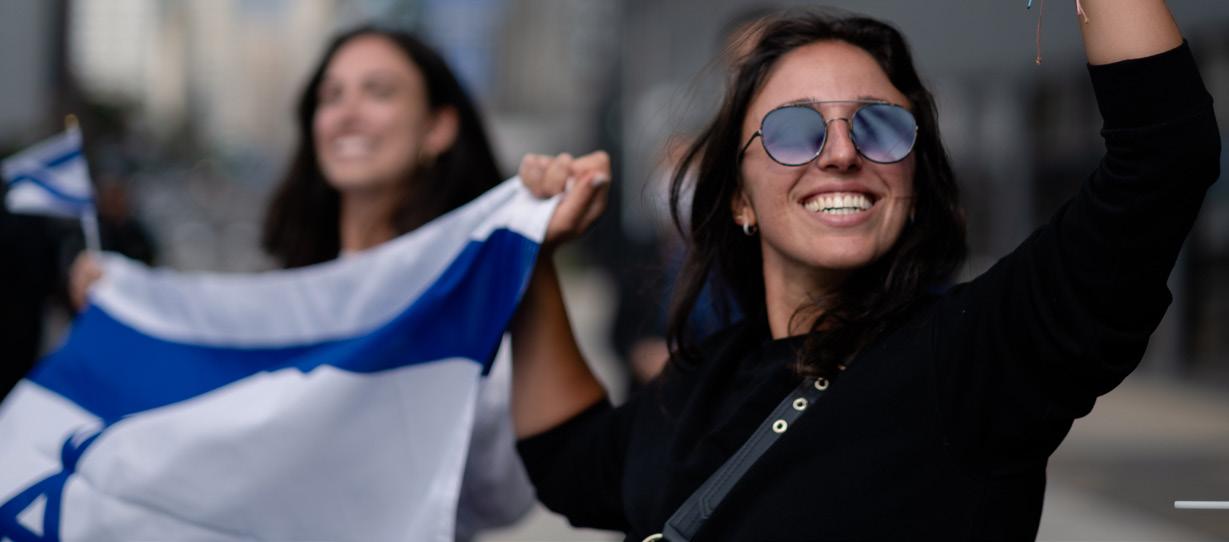
For Zionism to survive and Israel to thrive, we need a new, compelling rallying cry to mobilize a new generation around what 21st Century Zionism truly stands for. Recently, we observed the 125th anniversary of the First Zionist Congress. It’s a time to reflect on Zionism’s transformation — where it’s been, where it stands, and where it can go to capture the imaginations and hearts of the Jewish people today and moving forward.
“A Jewish homeland should exist” was the rallying cry of 19th-Century Zionism. Amid pogroms and the Dreyfus Affair, Herzl decided that the Jewish people needed their own country in order to escape antisemitism and tried to rally the Diaspora around that idea. While Herzl did not live to see the creation of the State of Israel, he did mobilize a movement.
Herzl also inspired the rallying cry of 20thCentury Zionism which was, “Israel must exist.” David Ben-Gurion, Israel’s first prime minister, moved to then-Palestine in 1906. In the wake of the Holocaust, Zionism became an urgent movement with a focus on immigration. The need for a Jewish homeland became clear to everyone and in just three years after the end of the war, Ben-Gurion announced Israel’s independence.
The days when people support Israel “just because” are mostly over.
Ben-Gurion also foresaw the future of Zionism. Where others saw Israel’s swamplands, he imagined a thriving metropolis state. Where others saw a desert, Ben-Gurion imagined the Negev blooming, and where others saw insurmountable problems and obstacles, BenGurion saw opportunities and solutions.
Zionism has changed immensely since the times of Theodor Herzl, and even David BenGurion. Today, Israel has earned its right to exist, but as a democratic state, it is also far from perfect. Israel must continue to live up to its promise as a beacon of light to the world by helping to solve some of the world’s greatest challenges.
Ben-Gurion famously said, “Israel’s future lies in the Negev.” Ben-Gurion could see the desert’s potential, and through the Negev and the impressive scientific and technological research and innovations coming out of BenGurion University, we can see the answer to our next rallying cry.
Israel, the Negev, and Ben-Gurion University are now the source for addressing global issues — from climate change to water, and with technologies from artificial intelligence to cyber defense.
With 15 million Jews in the world, eight in the Diaspora (six in the US, two in the rest of the world), and seven in Israel, Zionism must continue to be a Diaspora-driven movement. That begins by ensuring that Jews are actively involved in delivering Israel’s greatest gift to the world — scientific innovation and ingenuity.
Several years ago, I was traveling to Israel with the Governor of Colorado when he shared some of the state’s joint efforts with former President Shimon Peres. Peres responded, “Some people work on peace by talking about it all the time. And other people work on peace by doing it — and you’re actually doing it.”
Twenty-first-century Zionism is not simply about investing in Israel to ensure the existence of Israel.
It’s about investing in Israel because Israel is the light the world needs.
Doug Seserman is CEO of Americans for Ben-Gurion University. By supporting a world-class academic institution that not only nurtures the Negev, but also shares its expertise locally and globally, Americans for Ben-Gurion University engages a community of Americans who are committed to improving the world. David Ben-Gurion envisioned that Israel’s future would be forged in the Negev. The cutting-edge research carried out at Ben-Gurion University drives that vision by sustaining a desert Silicon Valley, with the “Stanford of the Negev” at its center. The Americans for BenGurion University movement supports a 21st century unifying vision for Israel by rallying around BGU’s remarkable work and role as an apolitical beacon of light in the Negev desert.
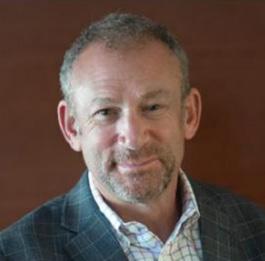

The Zin Valley in Israel, the longest wadi in the Negev desert, has a little bit of everything: soaring limestone crags, gushing waters from the desert oasis of Ein Avdat that formed the narrow canyon millions of years ago, a field of playful potato-shaped rocks, and a breathtaking vista from the heights of Mount Zin.
The grave of David Ben-Gurion overlooks the most magnificent viewpoint of the Zin Valley, so it was a fitting name for the Zin Fellows, Americans for Ben-Gurion University’s innovative initiative to get younger Jewish leaders involved in Ben-Gurion University and the future of the Negev Desert.
coast, and the highlight of the program, a final meeting in Israel, where Fellows spend most of the time in the Negev.
The program is working, because the Fellows have an impressive retention rate: Around a third of Zin program graduates eventually join the board of Americans for Ben-Gurion University. Others are more active in local chapters, publicizing the work of the university. And there’s a lot of value in serving as ambassadors in all types of ways, Max noted.
“Graduates are starting to advocate for BenGurion University on other missions to Israel, like Federation trips, saying, ‘We need to get the Negev on the agenda,’ where it typically hadn’t been before,” she said. “They encourage other trips to visit the university.”
Jill Max, a Zin Fellow who now chairs the Zin Fellows Committee for Americans for Ben-Gurion University, said the desert itself was a big draw for her and others, because they often know very little about the Negev, even though it accounts for more than 60% of Israel’s geography.

“People need to have positive ways to connect to and understand more about the history of Israel and the strategic importance of the Negev, why it was important to Ben-Gurion, and why it’s still important today,” she said.
The Zin Fellows first launched in 2010 to introduce younger leaders to Ben-Gurion University and its impact on the surrounding area, with the hope of recruiting new donors, board members, and ambassadors. The cohort runs for 18 months, with three in-person gatherings, two in the United States on each
For years, Max was looking for a way to connect with Israel that wasn’t political. “I have found that over the last five or six years, it’s become harder when you disagree with people politically, and values don’t line up,” Max said. “But when you’re at a university, it’s a lot easier to line up around education.”
“Politics in general are divisive, and politics around Israel can be very divisive in the Jewish community and beyond,” she added.
Max works at Towson University outside of Baltimore, Maryland, as the director of the Baltimore Hebrew Institute. So she’s well aware of the contentious politics on American college campuses.
“I always bring faculty to speak about things that have nothing to do with politics, more about exciting research that’s being done in Israel to showcase the kinds of innovation and high-level educational opportunities there are out there,”
she said. “People always think of the conflict when they think of Israel, and that’s not a great way to frame things for longevity. The bottom line is there’s a lot more to Israel than the conflict.”

One of the things that draws Max to BenGurion University is its commitment to a shared society and educating all of their neighbors, including the Bedouin. There are about 550,000 people in the Negev, including 160,000 Bedouins.



The Bedouin, traditionally nomadic Arab tribes who live across the Middle East, have been marginalized and excluded from opportunities in mainstream Israeli society. Max especially appreciated the emphasis on making higher education accessible to Bedouin women as a way of raising up the entire society.
“I met some Bedouin professors and I was really interested in hearing from them,” said Max. “Having faculty members who are from their community as role models makes people feel safer about sending their kids to higher education, if they’re not familiar with it.”
Max deeply understands the importance of having role models that look like you in leadership positions, as she has seen the challenges of first-generation college students on her campus. She knows how much they look up to professors who are also the first in their families to go to college.
“I think that’s a great message to give to North Americans, that you can get involved in causes about Israel that are not divisive, that bring people together.”A4BGU Zin Fellows Leadership Program - Cohort 2
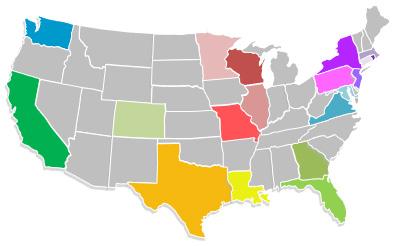


Max loved her time as a Zin Fellow, meeting with professors, visiting the campuses in Israel, and hearing about innovative advances in things she loves, like sustainability, and things that are “totally out of my wheelhouse,” like cybersecurity. She’s excited for the current cohort, which will experience a recently overhauled curriculum that is “even more intentional,” said Max.
And she’s glad that younger people are getting involved with Ben-Gurion University and appreciating the diverse ways to show up for Israel, especially in areas that have traditionally been left off of tourist itineraries.


“Studies have shown for the next generation, it’s much more challenging to get them to engage with Israel in positive ways, or even engage at all,” she said. “Fewer and fewer young adults are going to Israel, and that’s very problematic. We need to find ways to connect young Jews to Israel that don’t relate to politics, because I think otherwise, we’re going to lose that next generation.” For her, that engagement has come with exploring and falling love with an entirely new region of Israel, the Negev, and understanding the impact that Ben-Gurion University has on the future of the Negev, Israel, and the world at large.

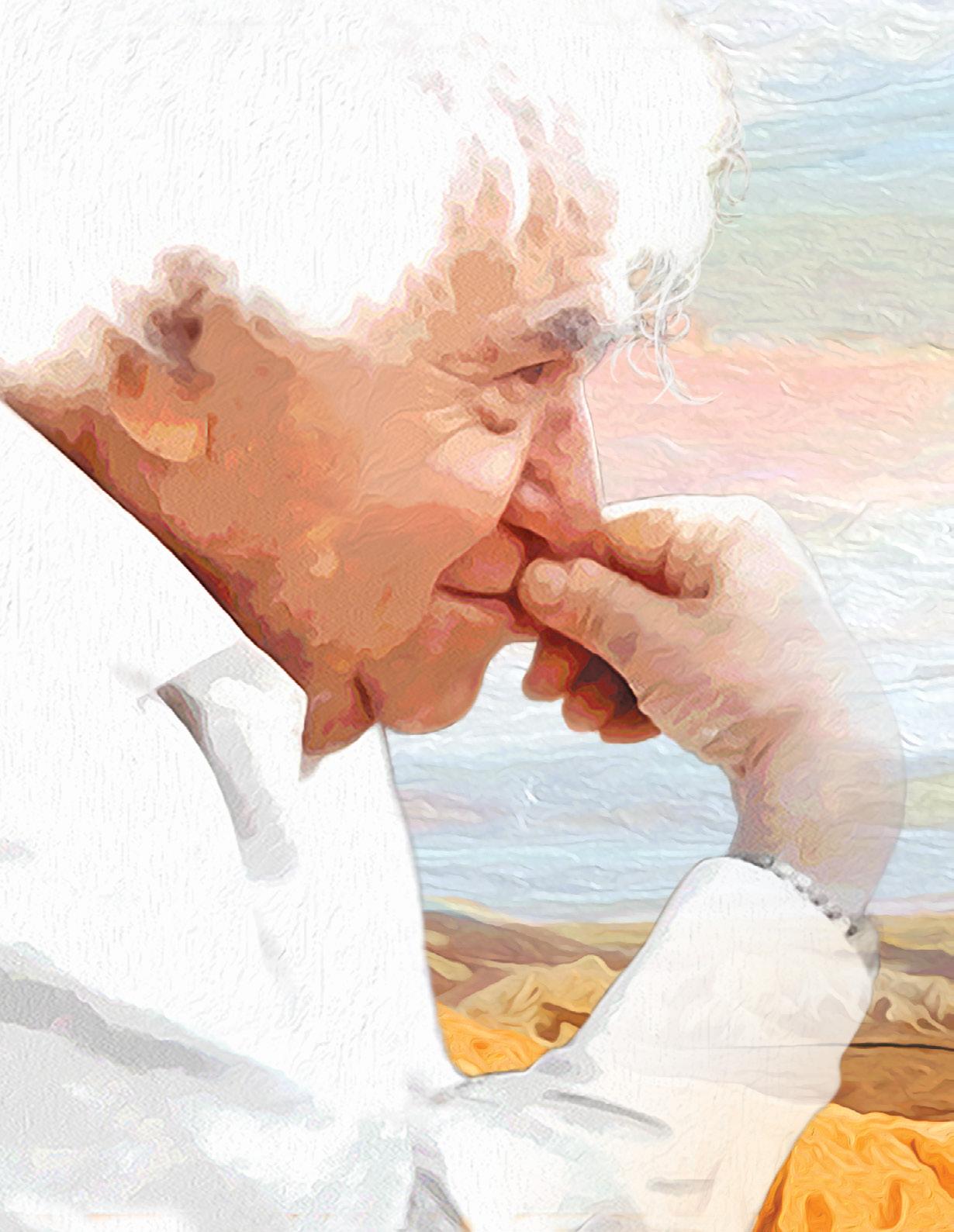
David Ben-Gurion once said, “It is in the Negev that the creativity and pioneering vigor of Israel shall be tested.”
The first prime minister of Israel’s insightful prediction is coming true. Ben-Gurion — a visionary who led by dreaming big — knew that Israel needed to cultivate the resources of the Negev not only to survive, but also to thrive. This vast, barren desert, which makes up 60% of the country, gave us the opportunity to create from the very beginning of the state of Israel. It is clear, as Ben-Gurion said, that “the future of Israel will emerge from the Negev.”
Today, Ben-Gurion University of the Negev is the fastest growing research university in all of Israel, and it’s leading the way on innovation in Israel and around the world.
On November 30, we’re inviting you to come and celebrate the life and legacy of our first prime minister with Ben-Gurion Day in the USA
On this special day, we’ll honor the leader’s legacy and discuss the future of the university, the Negev, and Israel at large. You can learn about advances we’re making and all we’re doing to contribute to the betterment of the planet.
Take Ben-Gurion University’s Zuckerberg Institute for Water Research (ZIWR), which, since its founding in 2002, has been solving water shortage issues in the Middle East. This is a major initiative that’s cultivating peace between Israel and its neighbors, and whose impact is spreading across the globe.
Ben-Gurion University is also focused on addressing climate change, which affects everyone on the planet. The Goldman Sonnenfeldt School of Sustainability and Climate Change is tackling problems like food insecurity and freshwater, and it’s developing sustainable methods for growing food.
Anti-Israel messages are spreading on college campuses and the internet. Now is the time to flip the script and rally around what’s right. We need to focus on all the good that’s coming out of Israel and how we are working to solve global issues.
The Negev has wondrous potential, and we can thank Ben-Gurion for being a visionary who helped us see that.
Look back at the history of Israel and acknowledge the foundational figures who built it and made this wondrous country possible.
We’re inviting organizations of all kinds to join us for Ben-Gurion Day and to get a glimpse into Israel’s exciting future as a country.
By working together, we can be partners in solving the world’s most pressing issues.
Save the Date for our upcoming virtual celebration of Ben-Gurion Day in the USA: November 30th, 2022 www.americansforbgu.org/BenGurionDayintheUSA
On Ben-Gurion Day, join us by honoring his life and legacy as a leader, statesman, and architect of the modern day Jewish state.

Most of the time, you can find PhD student Ilham Zargan in her lab in Rabat, Morocco, peering down a microscope in pursuit of finding a plant-based cancer therapy.
But this summer, Ilham traded the Sahara for the Negev desert as the first exchange student from Morocco to study at Ben-Gurion University. Ilham participated in the Global Health International summer program, a month-long intensive experience focused on delving into global health decision-making.
A total of four Moroccan students studied at Ben-Gurion University during summer courses in data sciences and health systems programs, the first student exchange between the two countries

Previously, the lack of diplomatic ties between Israel and Morocco prevented official cooperation between universities. But after the countries renewed ties as part of the Abraham Accords in 2020, Ben-Gurion University made a concentrated effort to reach out to Université Internationale de Rabat to invite exchange students.
“My whole intention was to come and collaborate,” said Ilham. “I’m a biologist, I work in a lab, and all I know about health is from a biologist’s point of view. But studying global health allowed me to see things from a completely different perspective. It’s more than just taking care of a single cell in the lab.”
Ilham found that her perspective on global health systems wasn’t the only thing shifting. “Israel wasn’t at all what we see in the news,” she said. “It’s totally wrong, it’s filtered. When I came here, I saw that so many things are different from what we see back home.”
Support the Ben-Gurion Annual Fund today. Help us provide much-needed support for student scholarships, faculty recruitment, research, outreach and engagement, and educational activities.
Donate now at www.americansforbgu.org/donate
Shown above: PhD student Ilham Zargan on left, along with other exchange students and Prof. Limor Aharonson-Daniel, BGU’s Vice President for Global Engagement.
One of Ilham’s biggest surprises was the amount of collaboration between Jewish and Arabs in the university.
she said. “We had three or four Palestinian professors, and they were collaborating with Jewish professors… That’s not what we see in the media.”
Beer-Sheva’s calm desert atmosphere reminded Ilham of her hometown of Fez, and she was delighted to discover so many similarities between Moroccan and Israeli culture.

“One of my Jewish friends invited me over to her house and I met her family and friends, and she actually prepared couscous!” she said. “She has the biggest heart, and her family was so nice to me.”
Ilham said she didn’t face too much pushback about her decision to study in Israel. When her father, a baker, heard the news, he took her aside for a two-hour lecture about the Jewish bakers who taught his family about bread making in Fez decades ago. People in Israel were mostly “astonished” when they learned Ilham was from Morocco, and even strangers on the street were friendly to her, she said.
The Global Health summer program includes seminars, field trips, and a week-long practicum with a local organization. For her
practicum, Ilham worked with HaGal Sheli (My Wave), a youth surfing non-profit. Ilham and her fellow students gathered data about how surfing can impact children’s self-confidence, self-esteem, teamwork abilities, and study habits.
What stuck out to her was the surf club’s emphasis on empowering marginalized communities, including both Jewish and Arab children together. Ilham said that level of cooperation is something she hopes to bring back to the surf clubs in Rabat, where she will continue her research.
“The Arab and Jewish communities are actually working together,”

Ilham is also excited about the Ben-Gurion University professors she met who are in her research field of cancer therapy, and plans to collaborate with them back home.
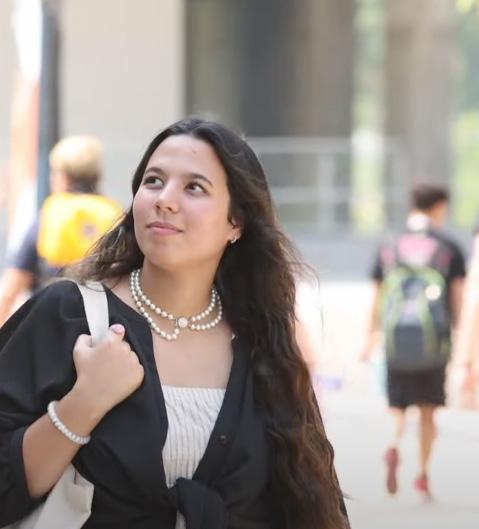

Ilham said that if cancer is about dysfunction on a cellular level, studying at Ben-Gurion University helped her see that global health is about dysfunction on a systematic level.
For Ilham, being the first Moroccan exchange student at Ben-Gurion University was a reminder of something that biologists know well: Everything is constantly in flux. Things are constantly growing and changing, with new relationships beginning and ending. It happens at a cellular level, and it happens at a national level, like two countries whose governments once decided they were enemies are now friends.
“When I’m in my lab, looking at my cells, I observe the behavior of cells and how they relate to one another,” she said. “But the deeper you look, the more you’ll see that the way cells behave is similar to life itself.”
“Before, all I thought about was cells and individual human beings,” she said. “But studying public health here made me rethink my research, to consider the communities and the environment and policies. It will definitely help broaden my PhD research.”
 Above: Original David Ben-Gurion archival materials being moved from IDF archives to the Cyndi and Max Mintzberg BenGurion Research Institute for the Study of Israel and Zionism Building and the Ben-Gurion Archives.
Above: Original David Ben-Gurion archival materials being moved from IDF archives to the Cyndi and Max Mintzberg BenGurion Research Institute for the Study of Israel and Zionism Building and the Ben-Gurion Archives.
David Ben-Gurion may not have had social media, but he was an early adopter of status updates. He always had a small notebook in his pocket, where he would record events and thoughts throughout the day as he attempted to build the State of Israel.
The notebooks include entries like: “December 7, 1953, 1 pm. I submitted my resignation to the president.” “December 14, 1953. I went out this morning to Sde Boker.”
There’s also what might be Israel’s most famous to-do list, written on November 26, 1947, days before the vote on the UN Partition Plan. It was a laundry list of things a new state needs: Government. Army. Currency. Laws. Courts.
For the first time, these personal notebooks offering an intimate view of Ben-Gurion’s daily life will be available to the public at the newly opened Cyndi and Max Mintzberg Ben-Gurion Archives Building in Sde Boker, in cooperation with Ben-Gurion University of the Negev.
“We know all of the stories about Ben-Gurion, but this is the most intimate way to look into his everyday life,” said Dr. Adi Portughies, Director of the Ben-Gurion Archives and Head of the Infrastructure Information System. “You can see the notations in blue pen in these pocket journals — what happened hour by hour.”
Eizenkot,
Ya’alon
Max
For those who aren’t physically in Sde Boker, the entire archive is available digitally. Some of the more high-profile items, including the diaries, are online in both photo and text form, meaning researchers and students can search the text in Hebrew. The portion of the diaries from 1947 to 1949 have been translated into English, and other aspects of the archive will be searchable in English via automatic translation.
Ben-Gurion’s archives were previously held in Jerusalem at the state archive. There was a small archive on the Ben-Gurion University campus in a cramped underground room for research purposes only that was not open to the public.
Since 1975, Sde Boker has been trying to bring the archives to the desert and establish the equivalent of Israel’s first presidential library. But the town lacked facilities with adequate climate control and security, so the Jerusalem archives only sent photocopies of the material. Only this year, with the opening of the archives building, the originals finally made their way to the Negev.
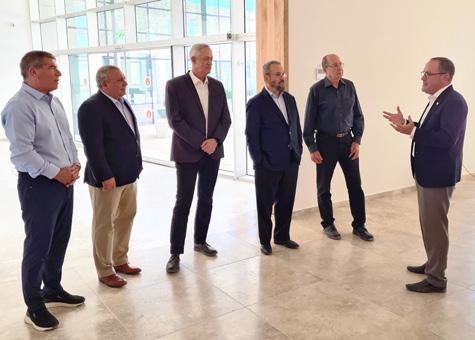
The new building will have two wings: one for the archives, and the other for a new visitor’s center and research hub called the Cyndi and Max Mintzberg Ben-Gurion Research Institute for the Study of Israel and Zionism Building. The Ben-Gurion Heritage Center will run the new visitor’s center, a 3,000 square foot space that will allow visitors to see the archive’s “blockbuster” items and also provide classrooms and study spaces for visiting scholars.
There are now about 2,000 files in the archive, covering the years 1900 to Ben-Gurion’s death in 1973, including 220 interviews with people close to Ben-Gurion, many of whom have already passed away.

One of the oldest documents is a letter from Ben-Gurion’s father, Avigdor Gruen, sent to Theodor Herzl in 1901, recommending his son to Herzl’s budding Zionist initiative.

Archive size is sometimes measured in the amount of shelving it requires. The Ben-Gurion archive, at about 800 meters of shelving, is dwarfed by other archives in Israel. The Israel Defense Force’s archives are around 150 kilometers of shelving, according to Portughies. But the content is essential for understanding early Israel, he says.
“You cannot write research about the formative years of the State of Israel, about the relations between the State of Israel and Jewish Diaspora in the 1950s and 1960s, without understanding Ben-Gurion’s part in it,” said Portughies. “He was very dominant, so really, not a single research paper on the early days of the State of Israel could be written without exploring these archives.”
With more support, Portughies hopes to expand the archive’s digital searchability. Digital humanities is a new and rapidly changing field, and the possibilities with digitizing are endless, he said.
Currently all files in the archive are available online as photographs, but the dream is to upload everything as searchable text. This would allow features like clickable links on the names of politicians and leaders mentioned in a document, linking to other files where those people have appeared, or even geographic maps.
“We know all of the stories about Ben-Gurion, but this is the most intimate way to look into his everyday life.”
Presidential libraries in the United States are sometimes an opportunity for a leader to present history the way they want their legacy to be remembered. But Portughies said the Ben-Gurion archives plan to show Israel’s founding father “without make-up.” Ben-Gurion was a prodigious note-taker, filling thousands of pages with facts, figures and information.
Portughies called him “the original Excel user” due to his love of tables. During the War for Independence, for example, Ben-Gurion filled out detailed tables with the number and size of water wells in Jerusalem to know how long residents could last without water delivery.
“This tracking of everyday life means that it’s authentic,” said Portughies. “It’s not the way some leaders reconstruct their pasts through writing about events afterwards.”
Another highlight of the archives collection is Ben-Gurion’s personal correspondence, not with world leaders and politicians, but with regular people. “He loved to write to people — it was his way of keeping his finger
on the pulse of the population,” he said. “People would write in about everything, and he responded to almost every one of them. People wrote about religion, language, ideas for a better administration. Sometimes people wrote from the United States or Australia or France asking if they should make aliyah [move to Israel].”
The digitalization means that people who have heard a family legend about a letter from BenGurion can now search their family’s name in the archive to see if it exists.
More than anything, Portughies hopes the new archives serve as both a resource and an inspiration. “Times are changing today and we may feel like this is a really tense era,” he said. “But then you read Ben-Gurion’s diary from 1940 and you realize, they had harder times, and they made it.”
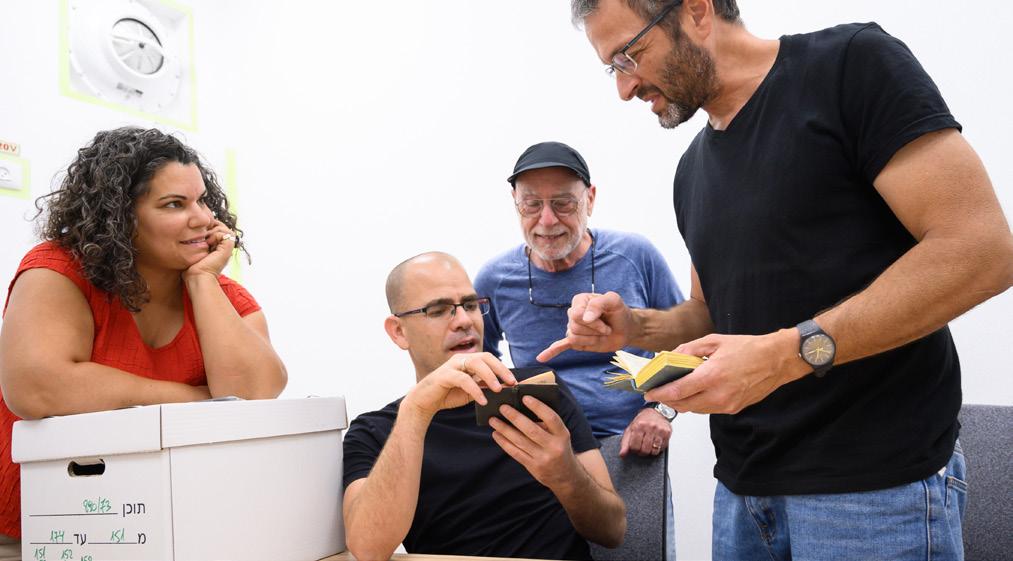
Did you know Israel’s first prime minister was also a headstandperforming law school dropout deeply interested in Buddhism? Read on to see what else you may not have known about Israel’s first prime minister.
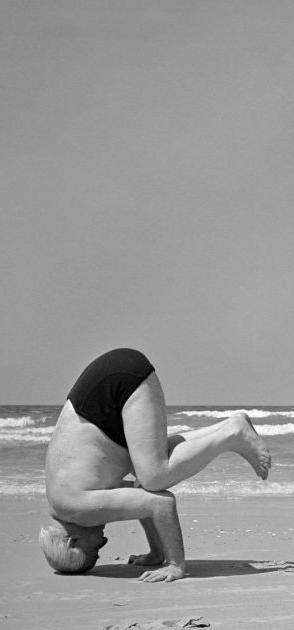
David Ben-Gurion was born David Gruen in Plonsk (now part of Poland) in 1886. Gruen changed his name to Ben-Gurion in 1906, when he arrived in Palestine, in honor of one of the Jewish generals who fought against the Roman legions during the reign of Bar Kochba.1
In 2003, the city of Plonsk returned Ben-Gurion’s birth certificate to Israel, which mentioned that Ben-Gurion had a twin who died soon after birth, something that no one had previously known about the prime minister.2
Ben-Gurion began studying law in Constantinople in 1912. He planned to run for the Turkish Parliament in order to help Jews emigrate to then-Palestine. But, World War I forced Ben-Gurion to drop out of law school.3
How tall was Ben Gurion? He was 1.52m tall, or just under 5 feet.
Ben-Gurion suffered from back pain for years. He found relief working with Moshe Feldenkrais, who developed a mind-body exercise program and taught him how to do headstands. In 1957, he was photographed showing off this skill on Tel Aviv’s beach.4
Although fiercely proud of his Judaism and a prolific bible scholar who wrote numerous books, Ben-Gurion was also deeply interested in Buddhism. During Ben-Gurion’s official visit to Burma in 1961, he spent one week at a Buddhist meditation retreat.5
In Ben-Gurion’s home in Sde Boker, his original Oster blender is still on display. As part of his health routine, Ben-Gurion’s wife Paula would make him her famous “Kutch-Mutch,” which Ben-Gurion ate twice a day. It was made of apple puree, raspberry juice, soft cheese, and eshel (a high-fat dairy product).6
1.
https://knesset.gov.il/vip/bengurion/eng/BenGurion_Bio_eng.html
2. https://www.haaretz.com/2003-04-18/ty-article/ben-gurion-mayhave-been-a-twin/0000017f-dbb5-d3a5-af7f-fbbf89420000
3. https://knesset.gov.il/vip/bengurion/eng/BenGurion_Bio_eng.html
4. https://jweekly.com/2000/08/18/feldenkrais-exercises-turnedben-gurion-on-his-head/

5. https://www.tabletmag.com/sections/arts-letters/articles/davidben-gurion-buddhism-israel https://jfc.org.il/news_journal/60300-2/97159-2/?lang=eng
6. https://visitingnegev.com/david-and-paula-ben-gurion-deserthome/ and https://ben-gurion.co.il/en/digital-tour/
 Above: David Ben-Gurion
Above: David Ben-Gurion
NOVEMBER 30, 2022
David Ben-Gurion dreamt of a homeland for the Jewish people and brought it to life. Others saw a desert, but he saw the heart and soul of the Modern State of Israel. Just like the University that carries his name, the first Prime Minister envisioned an Israel that would solve some of the world’s biggest problems.
Without David Ben-Gurion’s dreams and historic accomplishments, Israel would not be the incredible, innovative, and thriving country it is today. This year, for the very first time, “Ben-Gurion Day” will come to the USA!
So, we invite you to step into his footsteps and DREAM big with us. Each year on November 30th, Israel pays tribute to David Ben-Gurion, with a national holiday.
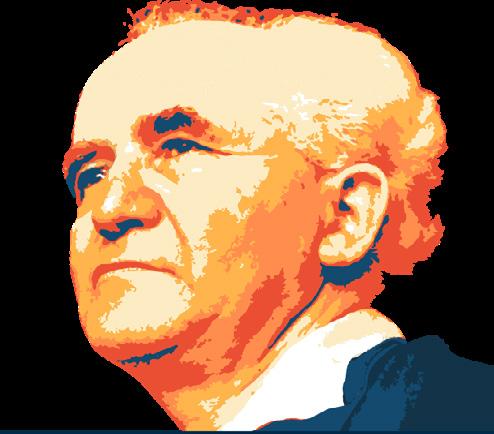
Join us on November 30th at 12pm EST for an EXCLUSIVE virtual celebration.
www.americansforbgu.org/BenGurionDayintheUSA

